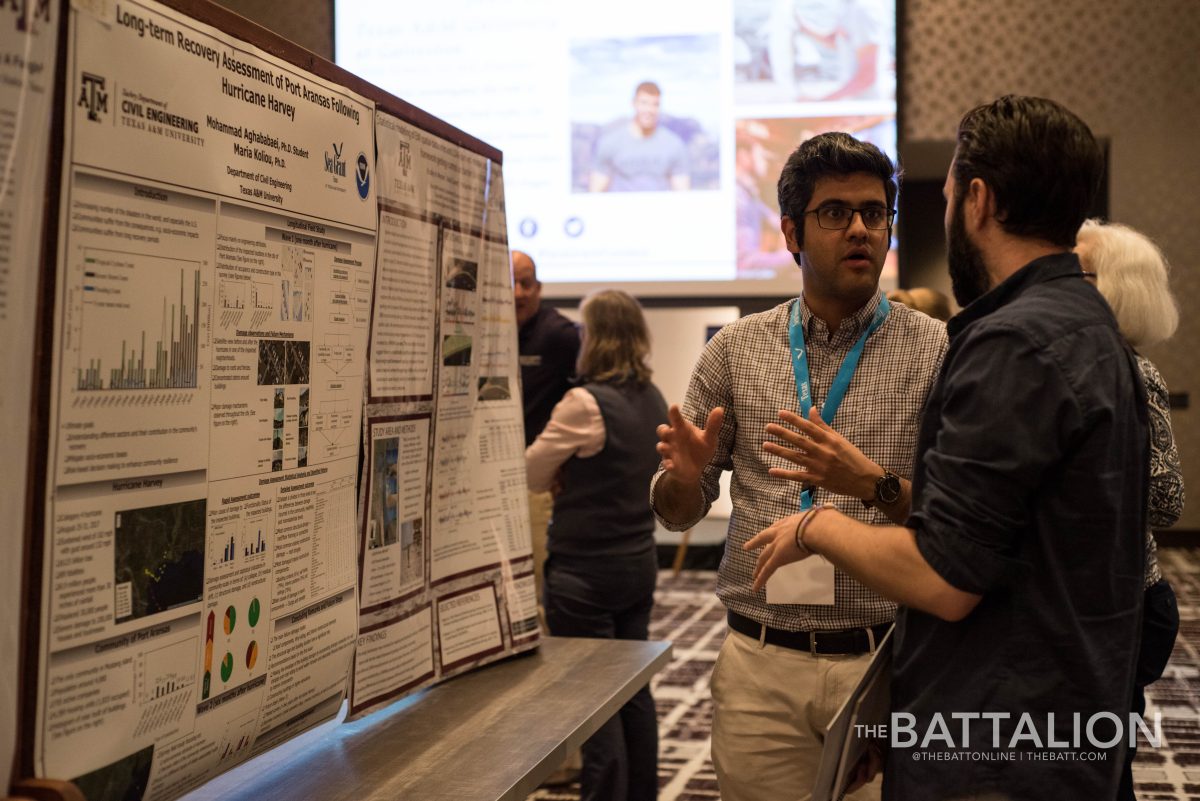The first ever Texas Sea Grant Symposium showcased new research and recognized advancements made by Texas researchers.
On Tuesday, “Coastal & Ocean Science at Work for Texans” was held in the Texas A&M Hotel and Conference Center. Several faculty members and students presented research that supports interests in Texas coastal communities. The Texas Sea Grant College Program funds research from all across Texas and communicates the results to workers in the industry to ultimately improve the coastal cities community and marine life. The event gave the agents of the program a look at the research that may affect their communities.
Texas A&M’s vice president of research, Mark A. Barteau, presented several of the faculty members and graduate students with awards to honor their work. Marine biology graduate student Christine Figgener was awarded the Inspire to Influence Award for the impact she made on public opinion of single-use plastics through the viral video of her team on the shores of Costa Rica removing a plastic straw from an olive ridley sea turtle’s nostrils in 2015.
Greg Stunz, professor of marine biology at A&M-Corpus Christi and Class of 1994, focuses on sport fisheries and has received funding from Sea Grant in the past. He said that Sea Grant allows the research to be applied in the real world by bridging the gap between scientists and communities.
“We’re all doing research, but that research isn’t necessarily communicated to the fishermen,” Stunz said. “So Sea Grant comes in; they are extending the knowledge that’s generated at the universities out to the constituents.”
Sea Grant Director and Class of 1994 Pamela T. Plotkin said the program’s ability to disseminate the outcomes of research has improved the way local governments are able to react to issues that the gulf faces.
“Every two years, we have requests for proposals and we look for the best and brightest projects from across the state,” Plotkin said. “What we’re looking for is work that will have some real tangible outcomes that are going to impact our coastal and marine resources.
Biology graduate student Brie Myer received funding from Sea Grant for her research on the eating habits of female turtles during their reproduction period. She said working with Sea Grant in the future will give her the opportunity to make systemic changes to policy.
“I’m hoping that if I can show that this is something that’s needed, I can help make it a reality,” Myer said. “I can maybe work with the government or other students at the university level to improve the way that were managing the Gulf Coast.”
According to Plotkin, Sea Grant’s ultimate goal is to use research to improve the Gulf Coast and the Texas cities that rely on it.
“We like to find people who want to do research that is going to generate some outcomes and help the people of Texas,” Plotkin said.
More information about Texas Sea Grant is available at texasseagrant.org/.










